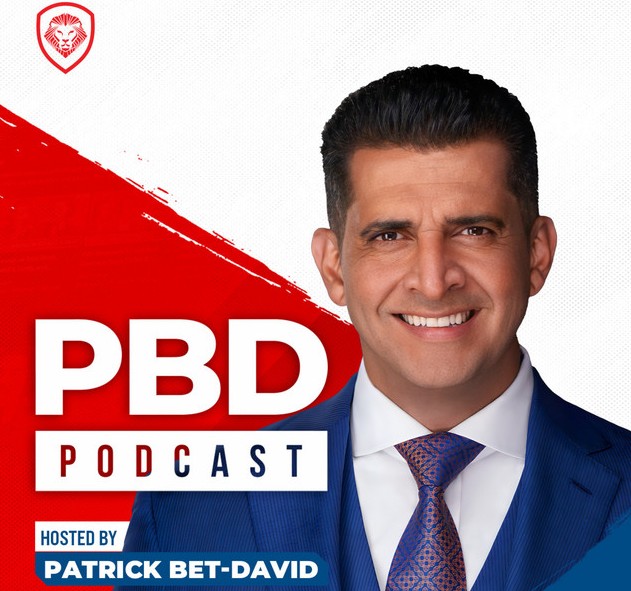“Epstein’s Black Book is REAL” is the Topic
Via PBD Podcast:
In his wide-ranging interview with Patrick Bet-David, investigative journalist Nick Bryant explored the disturbing intersections of Jeffrey Epstein’s network, Ghislaine Maxwell’s enabling role, and his earlier research into the Franklin scandal. The conversation framed Epstein not as an isolated predator but as part of a broader pattern of elite abuse, blackmail, and systemic cover-ups.
Bryant began by drawing parallels between the Franklin scandal of the late 1980s and the Epstein case. In the Franklin affair, young boys from Nebraska were trafficked to powerful politicians, businessmen, and government officials. Victims were flown across state lines, coerced into silence, and ultimately dismissed when they tried to speak out. Investigators who pushed too far faced intimidation, and media coverage often branded the story as conspiracy despite overwhelming evidence. Bryant noted how similar tactics of denial, suppression, and victim discrediting later defined the Epstein case.
The conversation shifted to Epstein’s infamous “black book,” a contact ledger that came into Bryant’s possession in 2012. The book, originally seized from Epstein’s former house manager by federal authorities, contained thousands of names, phone numbers, and addresses of influential people around the world. Bryant explained that many media outlets refused to touch the story, citing fear of legal consequences or pressure from powerful interests.
After repeated rejections, he succeeded in releasing a redacted version to the public in 2015. That, combined with Epstein’s private flight logs, offered a rare window into the scope of his network. While Bryant stressed that simply appearing in the book does not prove criminal involvement, he emphasized that many names were highlighted, annotated, or circled in ways suggesting special significance. This hinted at which contacts may have been central to Epstein’s operations.
Ghislaine Maxwell’s role as Epstein’s recruiter and facilitator was also discussed. Bryant pointed out that Maxwell was not merely a passive associate but an active partner who groomed, lured, and managed victims. Beyond her eventual conviction for sex trafficking, she represented the operational half of the Epstein enterprise. Together, Epstein and Maxwell created an atmosphere of trust for victims before exploiting them, while maintaining connections with some of the world’s most powerful individuals. The chilling discovery of hidden cameras in Epstein’s residences further reinforced Bryant’s view that blackmail was a deliberate component of the scheme. Compromising footage would have been invaluable leverage against politicians, financiers, and royalty.
PBD Questions Bryant on Veracity of Black Book Until…
Bet-David attempted to diminish the credibility of the black book by pointing to “four layers” of possession. Bryant said he got it from an attorney, who got it from the FBI, who allegedly got it from Alfredo Rodriguez, who stole it from Trump. A short time later, Bryant pointed out that when Pam Bondi released the infamous “Phase One” binders, those included copies of the exact same black book that Bryant released ten years earlier.
Patrick Bet-David pressed Bryant on the wider meaning of these findings. Bryant argued that Epstein functioned less as a rogue operator and more as a node in a systemic structure of exploitation. Both the Franklin and Epstein scandals revealed how elite predators could continue for decades without serious accountability, shielded by institutions unwilling to investigate. The blackmail dynamic—using incriminating material to control or neutralize the powerful—was central to understanding how these networks endured. He suggested that Epstein’s sudden death in custody fit the pattern of eliminating individuals whose testimony could implicate others.
The interview also explored the failures of mainstream media. Bryant lamented that reporters often focus on lurid side details while ignoring the larger structural questions: Who else was involved? Who protected Epstein? What role did intelligence agencies play? He believes media organizations avoided pursuing these angles for fear of lawsuits, retaliation, or damaging their relationships with elite sources. In his view, this reluctance is a continuation of the Franklin scandal, when editors and producers similarly buried credible leads.
Bryant spoke candidly about his personal journey as a journalist. Chasing these stories has often brought him rejection, professional risk, and accusations of trafficking in conspiracy theories. Yet he remained motivated by survivors who entrusted him with their stories. He sees his role as ensuring those voices are not lost to silence. In both Franklin and Epstein, he noted, the victims’ accounts were remarkably consistent, detailed, and corroborated—yet were systematically disbelieved because of the stature of the alleged perpetrators.
The interview concluded with Bryant’s call for independent investigations, free from political interference. He argued that elite-linked child trafficking networks cannot be dismantled by the very institutions complicit in protecting them. What is needed is transparency, accountability, and the courage to confront truths that implicate society’s highest circles. Without that, the cycle of abuse, cover-up, and dismissal will repeat itself, as it did from Franklin to Epstein.


